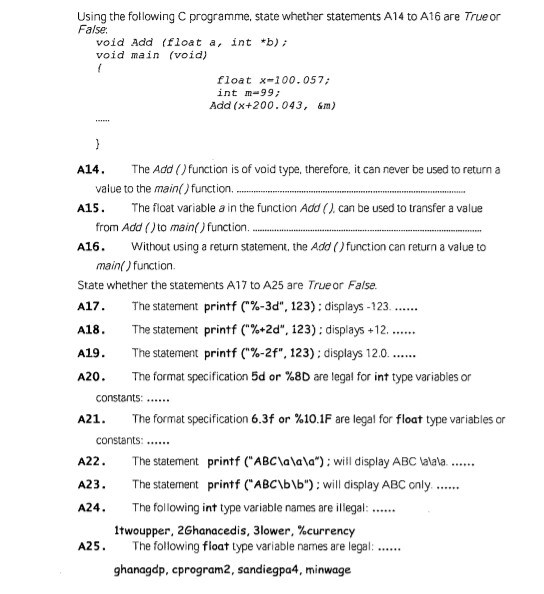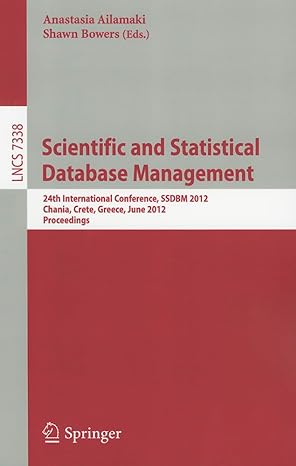Answered step by step
Verified Expert Solution
Question
1 Approved Answer
Using the following C programme, state whether statements A14 to A16 are True or False void Add (float a, int *b); void main (void) float

Using the following C programme, state whether statements A14 to A16 are True or False void Add (float a, int *b); void main (void) float x-100.057; int m=99; Add(x+200.043, 6m) A14. The Add () function is of void type, therefore, it can never be used to return a value to the main() function.. A15. The float variable a in the function Add () can be used to transfer a value from Add to main() function... A16. Without using a return statement, the Add () function can return a value to main() function State whether the statements A17 to A25 are True or False. A17. The statement printf ("%-3d", 123); displays -123....... A18. The statement printf ("%+2d", 123): displays +12. ...... A19. The statement printf("%-2f", 123); displays 12.0....... A20. The format specification 5d or %8D are legal for int type variables or constants ...... A21. The format specification 6.3f or %10.1F are legal for float type variables or constants:...... A22. The statement printf ("ABC\a\a\a"); will display ABC lalala....... A23. The statement printf ("ABC\b\b"); will display ABC only....... A24. The following int type variable names are illegal:...... It woupper, 2Ghanacedis, 3lower,"currency A25 The following float type variable names are legal: ...... ghanagdp, cprogram2, sandiegpa4, minwage
Step by Step Solution
There are 3 Steps involved in it
Step: 1

Get Instant Access to Expert-Tailored Solutions
See step-by-step solutions with expert insights and AI powered tools for academic success
Step: 2

Step: 3

Ace Your Homework with AI
Get the answers you need in no time with our AI-driven, step-by-step assistance
Get Started


